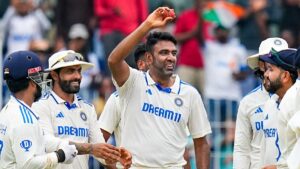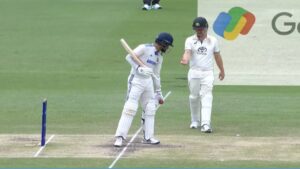Want to make it easier for Indians to do business in UK, Sunak govt seeks energetic ties: UK foreign secretary James Cleverly | India News – Times of India

On his first visit to India since he was re-appointed foreign secretary by the Rishi Sunak government, James Cleverly welcomed the excitement in India over Sunak taking over as PM, saying the UK government wants to make sure the partnership with India is forward-leaning and energetic.
In an exclusive interview to TOI, he said though that it had been a long-standing policy of the British government to enhance ties with India and that the UK’s Indo-Pacific tilt predated Sunak’s emergence as PM candidate.
Amid reports of Conservative infighting over the FTA under negotiations with India, Cleverly said the 2 countries are working for an Agreement that works for both sides and that the UK wants to make it quicker and easier for Indian entrepreneurs to do business in the UK.
Asked about India’s position on Ukraine, Cleverly expressed satisfaction that Modi had made obvious his support for the UN Charter and also international law and territorial integrity. Sunak, who discussed the Ukraine situation and Indo-Pacific in a meeting with his counterpart S Jaishankar, said UK’s looking to intensify cooperation with India in the Indo-Pacific specifically in security and defence.
Excerpts:
Indians are very excited about Rishi Sunak, who is of Indian ancestry, becoming the UK PM. Do you see the ties getting a boost or you believe the relationship could be saddled by unreasonable expectations?
It’s been a long-standing policy of the British government to enhance what is already a strong partnership with India. Our Integrated Review talked about the Indo-Pacific tilt and that predates Rishi becoming the PM, and so this is a continuity of a piece of work by the UK government to build on the strong partnership that we already have with India.
That said, it’s lovely to see how much excitement and enthusiasm there is about the British PM here in India. He spoke with PM Modi on Friday. This is my first visit after he appointed me as foreign secretary. We want to make sure this is a partnership which is forward-leaning and energetic.
You were in Mumbai for the UNSC meeting. What can Britain do to put more pressure on Pakistan to bring the 26/11 perpetrators to justice and what do you make of China’s efforts to block UN action against some of these individuals?
The events that took place in Mumbai and here in Delhi were about countering terrorism more broadly. Obviously, the Mumbai attacks were at the forefront in our minds. The international community is working to ensure that we counterterrorism in all its forms. We were very much focused on how to check terrorist-financing and use of technology by terrorists.
There were British nationals who perished in the Mumbai attacks. The UK has been in the past focus of terrorism. We will work with our friends around the world to counter terrorism wherever it is perpetrated.
How long will it take for India and UK to arrive at a comprehensive and balanced FTA? Your home secretary made some remarks about Indians overstaying visas and open-borders migration policy. Are these differences within the government acting as a deterrent?
We have made a lot of progress in the negotiations, and we continue to work for an agreement that works for both countries. We have been very, very explicit that our partnership with India is one that matters to us and one we want to enhance and develop. The people-to-people relationship is incredibly important. We want to make it quicker, easier and convenient for Indian entrepreneurs, students and investors to come to UK.
And we also want to make sure that British investors and entrepreneurs are able to come here in a way that is easy and convenient. It’s in both our interests to do this. As for the home secretary’s comments, I regard it as a very positive thing that so many Indians want to come and study in the UK, that Indian businessmen want to do business in UK. It’s a cause for celebration. Of course, it does mean that we must ensure our processes are right. We are looking for opportunities to work closely together, for streamlining our processes and for our diaspora communities to help amplify our partnership both here and in London.
What do you make of India’s Ukraine position? No condemnation yet of Moscow’s actions by India, while its trade with Russia is booming despite the Western sanctions.
UK’S position is clear and unambiguous. We have been critical of Russia’s actions. PM Modi has made it clear that he supports the UN Charter, rule of law and territorial integrity. UK and all countries around the world want to see the conflict come to an end. It’s incredibly important that potential aggressors around the globe are not allowed to believe that aggression against their neighbours will be successful. That is not the way to resolve things in the modern world. We will continue to raise the issue at the UN and in our bilateral conversations here and around the world to make sure that aggressors don’t succeed through aggression.
You have said India and UK are natural partners in the Indo-Pacific. What kind of cooperation do you foresee further in security and defence in the region?
We will look to enhance our partnership specifically around security and defence. We know that UK has some real strengths. We have always been a strong maritime nation and that is an offer we can make in terms of sharing our expertise. We have a very successful high-end manufacturing sector in a range of areas including defence and security, and also in renewable energy.
We discussed the 2030 roadmap. I made the commitment to Dr Jaishankar that I want to work with him to deliver this partnership and that it’s in our mutual interest to do so. A country which is growing economically, it already has a very consequential voice on the world stage and we want to make sure that our enhanced focus on the Indo-Pacific goes hand in hand with India. We discussed various elements of the roadmap. We discussed the Ukraine situation but we also discussed the increased influence of the Indo-Pacific as a region and the great opportunities we have there as bilateral partners.
In an exclusive interview to TOI, he said though that it had been a long-standing policy of the British government to enhance ties with India and that the UK’s Indo-Pacific tilt predated Sunak’s emergence as PM candidate.
Amid reports of Conservative infighting over the FTA under negotiations with India, Cleverly said the 2 countries are working for an Agreement that works for both sides and that the UK wants to make it quicker and easier for Indian entrepreneurs to do business in the UK.
Asked about India’s position on Ukraine, Cleverly expressed satisfaction that Modi had made obvious his support for the UN Charter and also international law and territorial integrity. Sunak, who discussed the Ukraine situation and Indo-Pacific in a meeting with his counterpart S Jaishankar, said UK’s looking to intensify cooperation with India in the Indo-Pacific specifically in security and defence.
Excerpts:
Indians are very excited about Rishi Sunak, who is of Indian ancestry, becoming the UK PM. Do you see the ties getting a boost or you believe the relationship could be saddled by unreasonable expectations?
It’s been a long-standing policy of the British government to enhance what is already a strong partnership with India. Our Integrated Review talked about the Indo-Pacific tilt and that predates Rishi becoming the PM, and so this is a continuity of a piece of work by the UK government to build on the strong partnership that we already have with India.
That said, it’s lovely to see how much excitement and enthusiasm there is about the British PM here in India. He spoke with PM Modi on Friday. This is my first visit after he appointed me as foreign secretary. We want to make sure this is a partnership which is forward-leaning and energetic.
You were in Mumbai for the UNSC meeting. What can Britain do to put more pressure on Pakistan to bring the 26/11 perpetrators to justice and what do you make of China’s efforts to block UN action against some of these individuals?
The events that took place in Mumbai and here in Delhi were about countering terrorism more broadly. Obviously, the Mumbai attacks were at the forefront in our minds. The international community is working to ensure that we counterterrorism in all its forms. We were very much focused on how to check terrorist-financing and use of technology by terrorists.
There were British nationals who perished in the Mumbai attacks. The UK has been in the past focus of terrorism. We will work with our friends around the world to counter terrorism wherever it is perpetrated.
How long will it take for India and UK to arrive at a comprehensive and balanced FTA? Your home secretary made some remarks about Indians overstaying visas and open-borders migration policy. Are these differences within the government acting as a deterrent?
We have made a lot of progress in the negotiations, and we continue to work for an agreement that works for both countries. We have been very, very explicit that our partnership with India is one that matters to us and one we want to enhance and develop. The people-to-people relationship is incredibly important. We want to make it quicker, easier and convenient for Indian entrepreneurs, students and investors to come to UK.
And we also want to make sure that British investors and entrepreneurs are able to come here in a way that is easy and convenient. It’s in both our interests to do this. As for the home secretary’s comments, I regard it as a very positive thing that so many Indians want to come and study in the UK, that Indian businessmen want to do business in UK. It’s a cause for celebration. Of course, it does mean that we must ensure our processes are right. We are looking for opportunities to work closely together, for streamlining our processes and for our diaspora communities to help amplify our partnership both here and in London.
What do you make of India’s Ukraine position? No condemnation yet of Moscow’s actions by India, while its trade with Russia is booming despite the Western sanctions.
UK’S position is clear and unambiguous. We have been critical of Russia’s actions. PM Modi has made it clear that he supports the UN Charter, rule of law and territorial integrity. UK and all countries around the world want to see the conflict come to an end. It’s incredibly important that potential aggressors around the globe are not allowed to believe that aggression against their neighbours will be successful. That is not the way to resolve things in the modern world. We will continue to raise the issue at the UN and in our bilateral conversations here and around the world to make sure that aggressors don’t succeed through aggression.
You have said India and UK are natural partners in the Indo-Pacific. What kind of cooperation do you foresee further in security and defence in the region?
We will look to enhance our partnership specifically around security and defence. We know that UK has some real strengths. We have always been a strong maritime nation and that is an offer we can make in terms of sharing our expertise. We have a very successful high-end manufacturing sector in a range of areas including defence and security, and also in renewable energy.
We discussed the 2030 roadmap. I made the commitment to Dr Jaishankar that I want to work with him to deliver this partnership and that it’s in our mutual interest to do so. A country which is growing economically, it already has a very consequential voice on the world stage and we want to make sure that our enhanced focus on the Indo-Pacific goes hand in hand with India. We discussed various elements of the roadmap. We discussed the Ukraine situation but we also discussed the increased influence of the Indo-Pacific as a region and the great opportunities we have there as bilateral partners.








